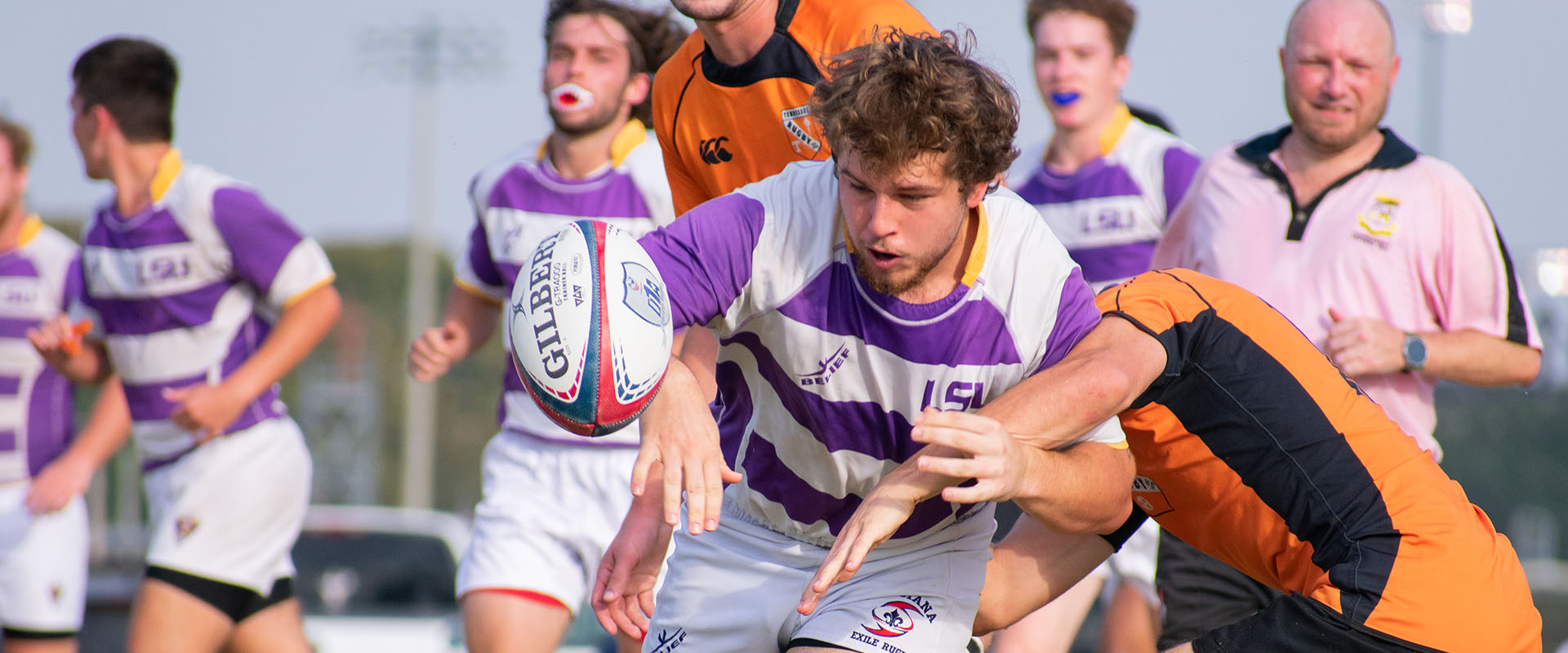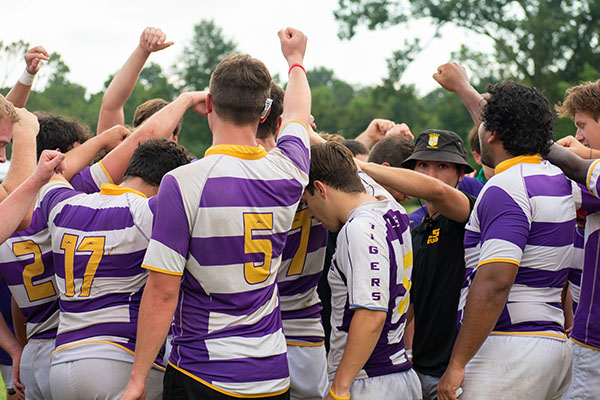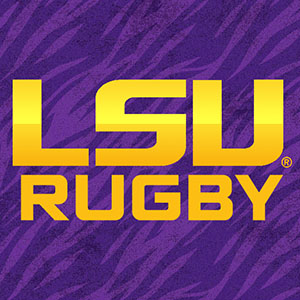
About Us
 The LSU Rugby Football Club was born in the early 1970’s by members of the LSU community interested in developing a club among the student population. Among the fathers of the club, history records Rob Haswell and Jay McKenna as being the initiators of the program on campus.
The LSU Rugby Football Club was born in the early 1970’s by members of the LSU community interested in developing a club among the student population. Among the fathers of the club, history records Rob Haswell and Jay McKenna as being the initiators of the program on campus.
Haswell, a visiting Geology instructor from South Africa, and Jay McKenna were playing in a campus flag football league. Haswell recounts that as he was running for a touchdown, McKenna followed and voiced his support of the run. McKenna’s cry of “With you!” signaled to Haswell, who played rugby in South Africa, that he was not the only rugger on the field. Coincidentally, McKenna had played for the University of Maryland. United by the interest of playing rugby in Baton Rouge, the two contacted the LSU Athletic Department who put them in contact with Hal Rose. Rose, who transferred to LSU in 1970, had also been recruiting players that same year. From this point, the club began to develop with Haswell acting as the club’s original coach and Rose performing the duties of a referee. In the early days, both contributed on the field as players as well.
The club grew quickly under the guidance of McKenna, Rose, and Haswell and soon had enough members to field multiple sides. The Tiger Ruggers met their first opposition in a match at Tulane University and in this contest secured the fledgling club’s first win in a 15-5 victory. Following this victory over the Green Wave, the LSURFC continued to grow around the principles of disciplined fitness and dedicated practice which facilitated the aggressive, attacking style of play that Coach Haswell sought to develop in the club. Haswell’ s philosophy of explosive and persistent offense is still evident in the team’s play in recent years. After his stay in Baton Rouge, Haswell returned to South Africa and went on to hold a seat in Parliament.
After its inaugural season, borne on early success, the team went on to win 17 consecutive matches in its 1971 season. Such success has been repeated throughout the club’s history, as double-digit streaks followed in 1976, 1983, 1991, and 1997. The ’97 season saw 22 straight victories in a 25 game season. The Tigers have posted winning seasons every year and have earned top honors in many of the nation’s most competitive tournaments. The club has been able to claim championships in the Louisiana, Deep South, and Texas Unions on numerous occasions throughout its history. Additionally, LSU won two unofficial collegiate national championships in the mid-1970s.
The club as a whole has toured England and the Bahamas, and has hosted teams from England, Wales, France, Australia, and several other countries. Visits to and from some of the top collegiate sides in the U.S. have become a yearly occurrence.
In recent history, 1990 saw a stumble for a club accustomed to winning. The Tigers secured only second place in both the Mardi Gras Tournament and Deep South RFU Collegiate Championships. In the following years, LSU won two straight Mardi Gras Championships in 1991 and 1992 and began a run of four straight Deep South Collegiate Championships. Seeking more challenging competition, the LSU Rugby Club transferred to the Texas Rugby Union in 1996 and earned second place honors in its first year. In the following year, the club posted a perfect 8-0 record in TRU play in a 22-0 season, easily clinching the regular season division title. In the championship tournament, however, LSU narrowly missed a victory in the final game, falling to Rice University, the Tigers’ main rival. This loss, determined by a single score, was heralded by spectators as one of the finest matches they had ever witnessed.
LSU captured its first TRU Championship in the 1997-98 campaign, compiling a 30-1-1 overall record having gone undefeated in Union play. In this year the Tigers won the Mardi Gras Tournament for the third consecutive year. LSU advanced to the Western Collegiate Tournament, but fell to Colorado State 13-12 in the first round. Adding to the team’s success was the honor of having Coach Steve Triche named as the Western Collegiate Mustangs coach along with 9 LSU ruggers selected to the final Western Squad.
The LSURFC opened the 21st century with appearances at Westerns before taking a downward turn from 2002 through 2004. Poor performance in the TRU during these years kept the club out of postseason play. However, the 2005 fall semester saw a rebound to customary levels of play which continued in the following spring. Despite the commotion caused by Hurricanes Katrina and Rita for the team’s many Southern Louisiana natives, the Tigers finished second in TRU play (3-1, 8-4 overall) and qualified once again for Western Playoffs. LSU finished 1-2 and did not advance beyond the first round.
In addition to these accomplishments on the field in ‘05-’06, the team moved to its current pitch at the LSU Sport & Adventure Complex. Under the leadership of former president Mark “Whitey” Sweeny (Fall 2005 – Spring 2007), the club was able to secure over $1800 from the LSU Student Government for the purchase of a new scrum sled and to defray travel costs of the 2005 Fall Tour the 2006 Western Playoff. LAMAR has been very generous in the donation of over $2700 in team warm-ups and completely funded the 2006-07 Rugby Season Promotional Poster.
In the 2008-2009 season LSU finished first place at Westerns hosted by Colorado. The Tigers defeated Colorado to advance to the Collegiate Sweet 16’s, later in the day they defeated Air Force which secured the title of Western champions. The Tigers went on to defeat Utah in the opening round of Sweet 16’s and eventually fell in the quarterfinals to San Diego State University. The 2009-2010 season was another successful year for the Tigers. LSU hosted the Western tournament at the SAC fields. LSU defeated Colorado , which ensured their spot in a second consecutive Sweet 16 appearance. The Tigers went on to claim second place in Westerns after putting on one of the best performances the club has ever seen, against Texas A&M. The Tigers played Penn Sate in which they lost a hard fought battle. In the consolation bracket, they went on to huge victory over UCLA ending another successful season for the Tigers.


